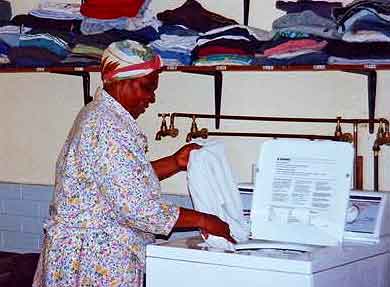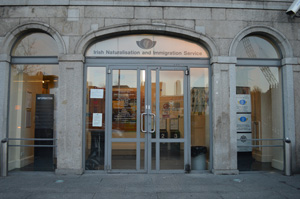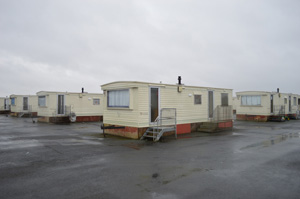September 24, 2018
Mercy Day
On 10 January, 2000 I left Ireland to teach as a volunteer in the North West Province of South Africa. I was assigned to a High School in Mmakau, (De Vildt) a bush area about 20 miles from Pretoria.
 |
| Laundry service provision for people living on the streets Strabane Mercy Shelter |
While in South Africa I became aware of ministries to homeless people set up by the Sisters of Mercy, mainly in Johannesburg. I visited two centres for homeless people, one in the city centre of Johannesburg and a second centre in Immaculata Hall alongside St Theresa’s Mercy Convent on Sturdee Avenue.
In the centre of Johannesburg about 50 homeless people came every evening in the hope that they might be able to source accommodation for the night as well as availing of a meal. Similar accommodation was afforded to street people in an area of Johannesburg adjacent to the Mercy Sisters’ residence on Sturdee Avenue. Here upwards of 20 to 30 homeless people were offered accommodation for the night. In this way the Sisters of Mercy contributed enormously to provide temporary accommodation for homeless people and alleviate their suffering. I became very interested in addressing some of the problems of homeless people.
In Pretoria refugees were continuously on the move in the aftermath of the dreadful floodings in Mozambique. You may recall seeing newspaper pictures of a young mother giving birth to her child atop a tree. Thankfully the young mother and her child survived and were given shelter elsewhere. While I worked in South Africa many refugees from Mozambique, in order to escape the poverty which surrounded them, made their way through the Kruger Park to South Africa in spite of the dangers they faced from predatory animals wandering through the Park. Some of those who made their way in safety to the borders of South Africa were set upon by police and their dogs as they tried to cross over the border to South Africa. On one occasion I was invited to visit the Refugee Centre in Pretoria and met a number of refugees there awaiting help.
 |
| Source: Asylum Archive |
Some weeks before returning to Ireland I became aware that Ireland was about to open its doors to refugees and that a Centre for Asylum Seekers was about to be set up in Athlone as well as in other towns throughout the country. I saw this ministry as a continuation and extension of my South African ministry. I made enquiries and learned that a support group was being set up in Athlone to help the residents at the Lissywollen Accommodation Centre, where 100 mobile homes had been built in order to house between 400 and 500 asylum seekers. I wrote to the chairperson of the support group and offered my services in whatever way I could assist. I received a letter on return of post thanking me and welcoming me to the support group.
When a decision was taken by the Government to offer shelter to asylum seekers mechanisms were put in place to deal with accommodating huge numbers of refugees who leaving their countries due to circumstances which made living in their countries very difficult and dangerous for people and children, e.g. the collapse of the Berlin Wall and the fall of the Soviet Union, conflicts in Bosnia, the war in Rwanda, and the ethnic cleansing and massacres of peoples which followed the conflicts in question.
The Department of Justice set up a special unit – RIA (Reception and Integration Agency) to deal with the crisis which had arisen as a result of wars and conflicts which had arisen in Europe, African and Eastern countries. Offices were opened at Dublin Airport, Mount Street and other places in Dublin. When asylum seekers arrived at Dublin or Shannon Airports they were met by officers from the Department of Justice and taken by minibuses to Mount Street where preliminary interviews took place, and then taken to temporary accommodation until such time as they were assigned accommodation in one of the many hostels throughout the country.
 |
| Lissywollen Accommodation Centre, Athlone, 2013 Source: Asylum Archive |
On many occasions busloads of people arrived at the Accommodation Centre in Athlone, were greeted by the Manager and Staff and given the keys of mobile homes. In the beginning the manager and staff members were confronted by many problems foremost among them being language barriers. Some of the new arrivals had little English, most of them did not know anyone and found themselves in a no-man’s-land for some time until they became acquainted with others who could speak their languages and understood where they were to go and settle in the mobile home assigned to them. Within the next few days they made the acquaintance of a Social Worker and were given the names of doctors who would help when medical problems arose. Prior to the first group arriving in Lissywollen in 2011 the manager had made contact with all the schools in the Athlone area who were prepared to enrol the children. In the following days there were other marathon tasks to be accomplished.
In my early days in Lissywollen I made a decision to visit every mobile home, meet and welcome the families and explained that I had not been given any brief but that I would take note of needs of people that I might try to address. English language classes were provided by Westmeath V.E.C. As time went on it seemed to me that there was a lot of boredom among the residents especially the women. They were not allowed to seek employment, cook their own ethnic food or leave Athlone unless they had business to conduct with their lawyers, many of whom worked in Dublin. A legal appointment in Dublin, Galway or Cork required a parent to travel to meet the lawyer, bring children with them and a buggy for baby or small children. Anne Scully rsm set up meetings for Sisters working with asylum seekers and arranged meetings for us mainly in Limerick, generally on a monthly basis. It was a great help to meet others who were working with displaced persons, compare notes and receive help.
In time I succeeded in setting up classes in Needlework, Crochet, Aerobics, Art, Pottery, Upholstery, Skin Care and Beauty Therapy, Water aerobics, Cookery and Home Management, Initially, asylum seekers were given to understand that they would be given leave to remain or refugee status within a short time of their arrival in the country. However, this has not happened. There are residents at the Athlone Accommodation Centre who have lived for almost 9, 8, 7, 6, 5 years in small mobile homes with adults and children, and still await leave to remain.
Thankfully RTE News tonight, 4 June, has announced good news for asylum seekers that within nine months they will receive permission to leave their hostels/accommodation centres. If this happens there will be great rejoicing among asylum seekers.
Messages to: Gerardine Kelly rsm